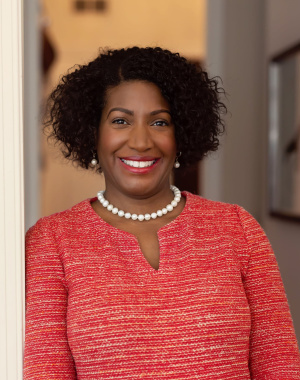Dr. Tressie McMillan Cottom on modern discourse
Date & time
Location
This is a Virtual Event.Free and open to the public. View this event on YouTube.
Join us for a conversation on modern discourse with Dr. Tressie McMillan Cottom, moderated by Dr. Celeste Watkins-Hayes, as they discuss the topics in her new book, Thick, including race, gender, inequality, higher education access, technology, culture, and more.
From the speaker's bio
Dr. Tressie McMillan Cottom is an award-winning author, researcher, educator, and cultural critic whose work has been recognized nationally and internationally for the urgency and depth of her incisive critical analysis of technology, higher education, class, race, and gender.
The foundation for Tressie’s first book, Lower Ed: The Troubling Rise of For-Profit Colleges in the New Economy, was formed by dissertation research for her doctorate from Emory University’s Laney Graduate School. In Lower Ed, Tressie questions the fundamental narrative of American education policy. In 2019, Tressie released Thick: and Other Essays. The collection has been described as “essential,” and the Chicago Tribune calls Tressie, “the author you need to read now.” Dorothy Roberts compares reading it to “holding a mirror to your soul and to that of America.” Thick was the winner of the Brooklyn Public Library Literary Prize and was a finalist for the 2019 National Book Award.
Tressie serves on dozens of academic and philanthropic boards and publishes widely on issues of inequality, work, higher education and technology. She is an associate professor in the School of Information and Library Science at the University of North Carolina-Chapel Hill and Senior Research Fellow at the Center for Information, Technology, and Public Life (UNC). She was awarded the MacArthur Fellowship in 2020.
Tressie also co-hosts Hear to Slay with Roxane Gay, a podcast with an intersectional perspective on celebrity, culture, politics, art, life, love, and more.
Hosted by the Gerald R. Ford School of Public Policy and co-sponsored by the Education Policy Initiative and Students of Color in Public Policy
